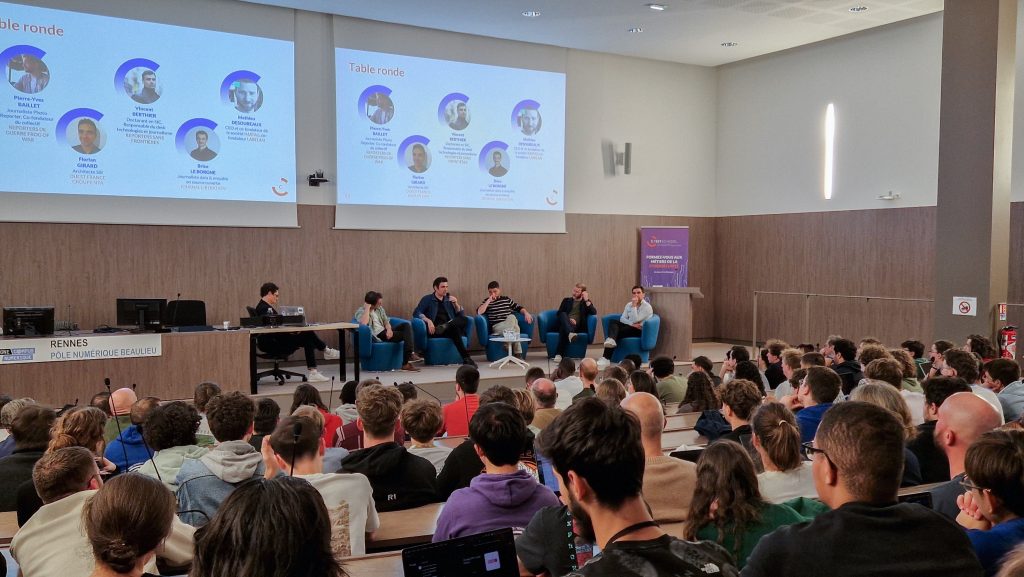06 October 2025
Deepfakes, cyber threats and journalism: recap of the first Cyber Thursday of the season
The first Cyber Thursday of the season was captivating, with a packed lecture hall attending a session on a hot topic: The journalism profession put to the test by cyber manipulations.

Verifying the authenticity of visual sources in the age of AI
Cyber Thursdays resumed this year with a new format: each session begins with a technical introduction, giving the floor to a local expert to present a concrete issue and the solutions developed to address it.
The first guest, Mathieu Desoubeaux, CEO and co-founder of IMATAG, opened the evening by outlining the challenges and technical hurdles researchers are tackling to help journalists ensure the authenticity of visual sources, where in the age of AI, reality and fiction can easily be confused.
He elaborated on the two main areas of work pursued by his teams, based on their expertise in watermarking and metadata management:
- Digital watermarking to protect images and certify their authenticity.
- Detection and monitoring of AI-generated video content.
Deepfakes and manipulation campaigns
Mathieu Desoubeaux then joined a panel discussion with Pierre-Yves Baillet (Photojournalist, co-founder of the collective Reporters de Guerre Frog of War), Vincent Berthier (Head of the Technology and Journalism Desk, Reporters Sans Frontières), Florian Girard (Information Security Architect, Ouest-France Groupe SIPA), and Brice Le Borgne (Data and Open-Source Investigative Journalist, Libération).
The five panelists debated several major issues:
- Cyberattacks targeting media outlets (phishing, ransomware, DDoS…).
- Journalist safety, facing cyberharassment, identity theft, and, in the field, difficulties controlling sources or even personal safety, particularly for war correspondents.
- The challenges of fact-checking as the line between true and false becomes increasingly blurred.
- The industrialisation of disinformation, fuelled by ever more sophisticated AI tools.
- Changes in information consumption, with Facebook declining in favour of TikTok and Instagram.
The speakers shared striking, sometimes impressive anecdotes, and raised important societal questions.
The evening was a success, attracting over 120 participants and a diverse group of students engaged with the topic and discussions. It concluded with a cocktail reception, giving attendees the opportunity to continue conversations and deepen their reflections.
The CyberSchool team warmly thanks the speakers for their availability and insights, which provided participants with a concrete, thoughtful, and enlightening field-based perspective.